
Find Help
More Items From Ergsy search
-

When is Stamp Duty payable in the UK?
Relevance: 100%
-

Who pays Stamp Duty in the UK?
Relevance: 75%
-

What is Stamp Duty in the UK?
Relevance: 73%
-

Are there different rates of Stamp Duty in the UK?
Relevance: 73%
-

What is the current threshold for Stamp Duty in the UK?
Relevance: 72%
-

How do I pay Stamp Duty in the UK?
Relevance: 68%
-

How is Stamp Duty calculated in the UK?
Relevance: 67%
-

Why do we pay Stamp Duty?
Relevance: 66%
-

Can businesses be charged Stamp Duty?
Relevance: 66%
-
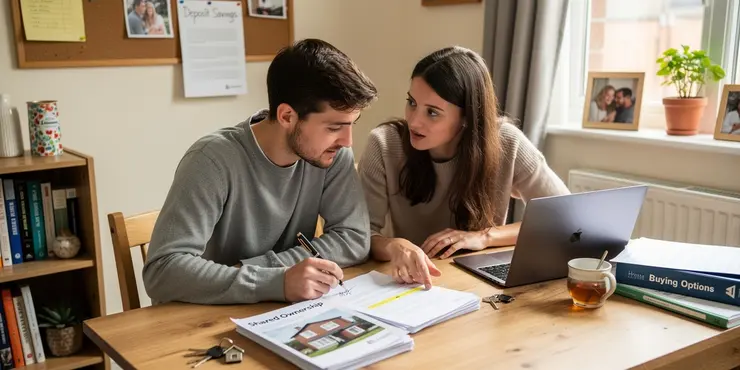
How does Stamp Duty affect shared ownership properties?
Relevance: 65%
-
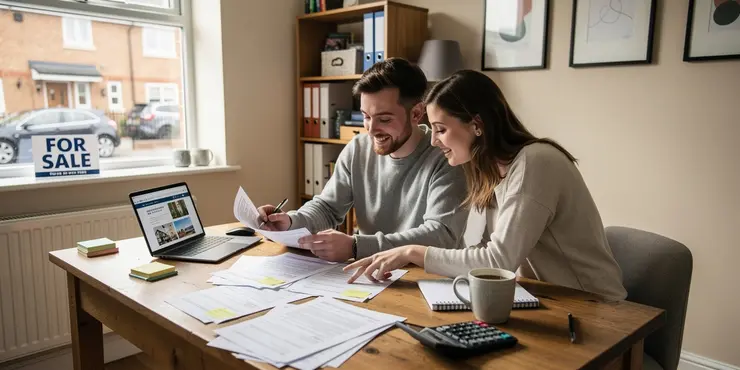
Is there a Stamp Duty exemption for first-time buyers in the UK?
Relevance: 64%
-

What was the Stamp Duty holiday in the UK?
Relevance: 63%
-
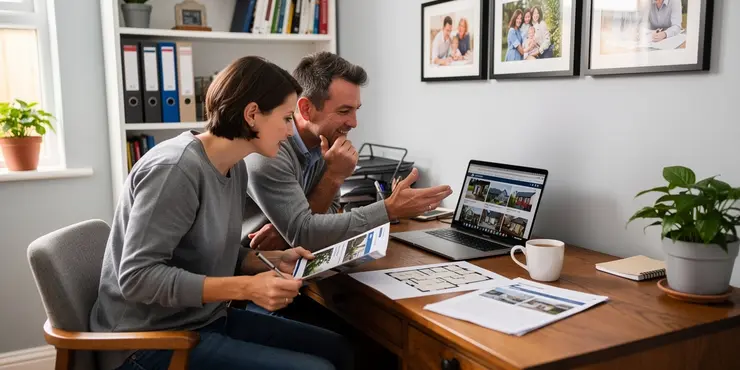
What properties are exempt from Stamp Duty?
Relevance: 62%
-

Can Stamp Duty be included in a mortgage in the UK?
Relevance: 61%
-
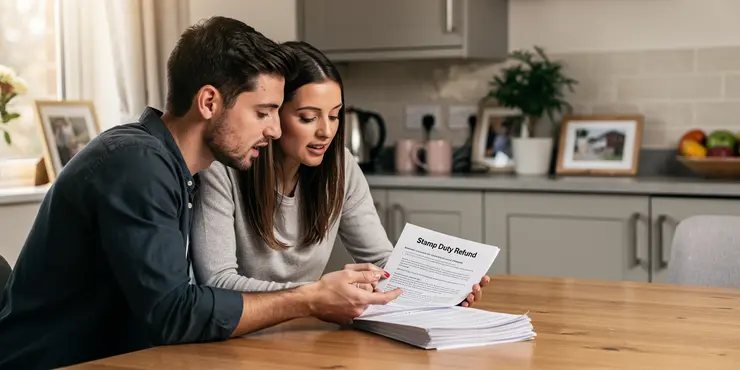
Can Stamp Duty be refunded in the UK?
Relevance: 61%
-
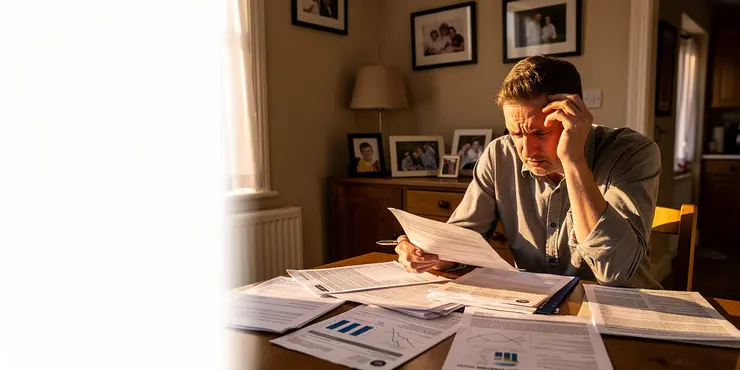
Is there a penalty for late payment of Stamp Duty in the UK?
Relevance: 60%
-

What about Stamp Duty in Wales?
Relevance: 60%
-

What is Stamp Duty Land Tax (SDLT)?
Relevance: 59%
-
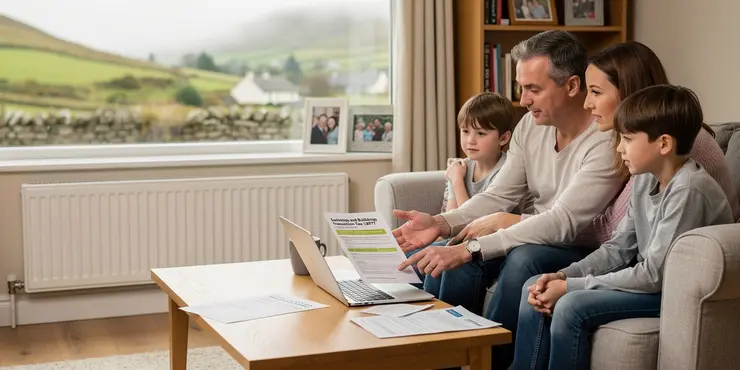
Does Scotland have a different Stamp Duty system?
Relevance: 47%
-

What is the fiduciary duty of directors to shareholders?
Relevance: 27%
-

What does 'fiduciary duty' mean in pension advice?
Relevance: 26%
-

Can my employer stop me from attending jury duty?
Relevance: 25%
-

Can I use my phone during jury duty?
Relevance: 25%
-

What is fiduciary duty and how does it relate to director disputes?
Relevance: 25%
-

What is the Wealth Tax in the UK?
Relevance: 15%
-

What legal obligations do directors have during a dispute?
Relevance: 12%
-

What are the elements of a professional negligence claim?
Relevance: 12%
-

Do I need to declare items bought in the EU when returning to the UK?
Relevance: 12%
-
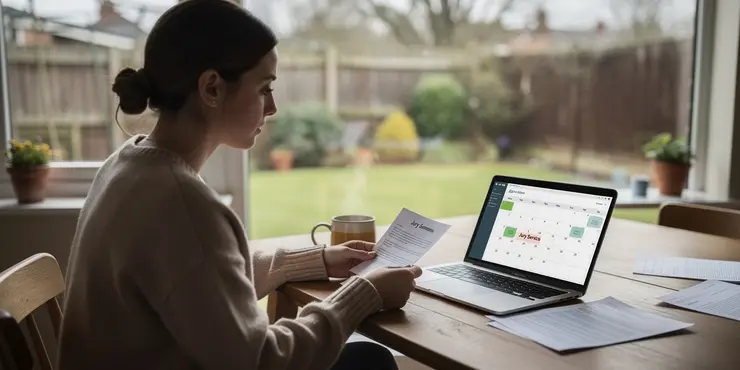
What should I do if I have a vacation planned during jury duty?
Relevance: 11%
-

Can I sue for professional negligence if no harm was done?
Relevance: 11%
-

Can a professional be sued for giving bad advice?
Relevance: 11%
-

Can my religion exempt me from jury service?
Relevance: 11%
-

What taxes in the UK target wealth?
Relevance: 11%
-

What is the role of a juror?
Relevance: 11%
-

What is the seven-year rule relating to inheritance tax?
Relevance: 11%
-

How is jury service selected?
Relevance: 11%
-

What is a breach of trust?
Relevance: 11%
-

Do I have to do Jury Service?
Relevance: 10%
-

Can I volunteer for jury service?
Relevance: 10%
-

What defenses are available in a professional negligence case?
Relevance: 10%
Introduction to Stamp Duty Land Tax (SDLT)
Stamp Duty Land Tax (SDLT) is a tax levied on property and land transactions in the UK, applicable when purchasing or leasing land and property over a certain price threshold. It is essential for anyone involved in property transactions to understand when this tax is due and how it is calculated.
When is Stamp Duty Payable?
Stamp Duty is payable when you purchase a property or land over a certain price in England and Northern Ireland. The current SDLT threshold for residential properties as of 2023 is £250,000, and for non-residential properties, it stands at £150,000. If the purchase price exceeds these thresholds, SDLT is due.
The tax must be paid within 14 days of the completion date, which is when the transaction process is finalized, and ownership is transferred to the buyer. This timeline is crucial as failure to pay within this timeframe could lead to interest charges and possible penalties.
Calculating Stamp Duty
Stamp Duty is calculated as a percentage of the property's purchase price, with different rates applying to different portions of the price. For first-time buyers, there are some reliefs available. For instance, first-time buyers purchasing a property under £425,000 are exempt from SDLT. However, above this price, rates apply in tiers.
For residential properties, as of 2023, the rates are structured in bands. For example, the first £250,000 is at 0%, the portion between £250,001 and £925,000 is taxed at 5%, and the subsequent portion between £925,001 and £1.5 million is taxed at 10%. For any amount above this, a rate of 12% applies.
Who Pays Stamp Duty?
The responsibility to pay Stamp Duty lies with the purchaser, whether they are buying a freehold, a leasehold, a shared ownership scheme, or through a program like Help to Buy. Buyers are typically required to submit a return to HM Revenue and Customs (HMRC) and make payment of the due amount.
In some cases, the buyer's solicitor or conveyancer will arrange for the payment and submission on behalf of their client, ensuring compliance with the deadlines.
Exemptions and Special Cases
Several scenarios offer SDLT exemptions or reliefs. Besides first-time buyer reliefs, other exemptions include transactions under £40,000, transfers of property between spouses or civil partners, and certain property transactions involving charities.
Additionally, different rules apply in Scotland and Wales, as they have their own property transaction taxes: the Land and Buildings Transaction Tax (LBTT) in Scotland and the Land Transaction Tax (LTT) in Wales, with separate thresholds and rates.
Conclusion
Understanding when Stamp Duty is payable and the applicable rates is crucial for anyone entering the property market in the UK. It ensures compliance with legal obligations and helps avoid unnecessary financial penalties. Buyers should be aware of thresholds, deadlines, and any available relief to effectively manage their financial responsibilities during a property transaction.
Introduction to Stamp Duty Land Tax (SDLT)
Stamp Duty Land Tax (SDLT) is a tax you pay when you buy or lease land or a property in the UK. You pay this tax if the property costs more than a set amount. It is important for anyone buying property to know when they need to pay this tax and how much it will be.
When is Stamp Duty Payable?
You pay Stamp Duty when you buy a property or land over a certain price in England and Northern Ireland. As of 2023, if you buy a home for more than £250,000, you must pay this tax. For other types of property, the limit is £150,000. If the price is more than these amounts, you need to pay SDLT.
You have 14 days to pay this tax after the property becomes yours. This is important. If you are late, you might have to pay extra money as a penalty.
Calculating Stamp Duty
Stamp Duty is a percentage of the property price. Different parts of the price have different rates. If you are buying your first home and it costs less than £425,000, you might not have to pay this tax. If it costs more than that, you will pay tax in parts.
For homes in 2023, the first £250,000 you don’t pay any tax. Then, from £250,001 to £925,000, you pay 5% tax. If it's between £925,001 and £1.5 million, the tax is 10%. Any amount over that is taxed at 12%.
Who Pays Stamp Duty?
If you are buying a home, you need to pay the Stamp Duty. This is true whether you buy it outright, have a shared ownership, or use a scheme like Help to Buy. You must tell HM Revenue and Customs (HMRC) and pay the tax.
Sometimes, the person helping you buy the house will pay and tell HMRC for you. They will make sure it is done on time.
Exemptions and Special Cases
There are times when you do not have to pay SDLT. First-time buyers might get help, and if the property costs less than £40,000, you don’t pay SDLT. If you are transferring property to your husband, wife, or civil partner, you might not have to pay. Charities might also not have to pay.
Scotland and Wales have their own rules. In Scotland, it's called the Land and Buildings Transaction Tax (LBTT) and in Wales, it’s the Land Transaction Tax (LTT). They have their own amounts and rates.
Conclusion
Knowing when to pay Stamp Duty and how much it costs is very important if you are buying a property in the UK. It helps you follow the law and not pay extra fines. Buyers should know about limits, deadlines, and any help they can get to handle their money well when buying a property.
Frequently Asked Questions
When is stamp duty payable in the UK?
Stamp duty is payable upon the purchase of property or land in the UK above a certain price threshold. It is due at the completion of the purchase.
What is the threshold for paying stamp duty in the UK?
The threshold for paying stamp duty can vary. As of October 2023, different rates apply depending on whether the property is residential, non-residential, or if it's a first-time purchase.
How soon must stamp duty be paid after purchasing a property?
Stamp duty must be paid within 14 days of completion of the property purchase.
Can stamp duty be paid in installments in the UK?
No, stamp duty must be paid in full at the time it is due. There is no option to pay it in installments.
Who is responsible for paying stamp duty in the UK?
The buyer of the property is responsible for paying stamp duty in the UK.
How is stamp duty calculated in the UK?
Stamp duty is calculated based on the purchase price of the property, with different rates applying to portions of the price within certain bands.
Do first-time buyers have to pay stamp duty in the UK?
First-time buyers may be eligible for a stamp duty relief, meaning they pay reduced rates or no stamp duty at all below certain thresholds.
Are there any exemptions from paying stamp duty in the UK?
Certain transactions may be exempt from stamp duty, such as property transfers between spouses or on divorce.
Is stamp duty payable on leasehold properties in the UK?
Yes, stamp duty is payable on leasehold properties if the premium exceeds the threshold.
Does the purchase of additional properties affect stamp duty in the UK?
Yes, purchasing additional properties may incur a higher rate of stamp duty, known as the SDLT surcharge.
What happens if I do not pay stamp duty on time?
If stamp duty is not paid on time, penalties and interest may be applied by HMRC.
Can I claim back stamp duty if I overpaid?
Yes, you can claim a refund if an overpayment was made, within a certain time frame, usually four years.
What recent changes have been made to stamp duty in the UK?
Changes to stamp duty can be announced periodically, often in government budgets. It's important to check the current rules at the time of purchase.
Is stamp duty applicable on commercial properties in the UK?
Yes, stamp duty is payable on commercial properties, but the rates and thresholds differ from residential properties.
Does stamp duty vary between different parts of the UK?
Yes, different rules may apply in England, Wales, Scotland, and Northern Ireland as they have devolved powers for land taxes.
Do I pay stamp duty if I inherit a property in the UK?
Stamp duty is not payable when you inherit a property, but other taxes like inheritance tax may apply.
Can I include stamp duty costs in my mortgage?
Stamp duty cannot be added to your mortgage; it needs to be paid separately.
What is the difference between SDLT and stamp duty?
SDLT (Stamp Duty Land Tax) is the formal name for what is commonly referred to as stamp duty in England and Northern Ireland.
Is there stamp duty payable on shares or securities?
Transactions involving shares or securities may incur stamp duty reserve tax, a different form of duty.
How do I pay stamp duty in the UK?
Stamp duty is usually paid to HMRC through your solicitor or conveyancer during the completion of the property transaction.
When do you have to pay stamp duty in the UK?
Stamp duty is a tax you pay when you buy a house or land in the UK. You need to pay it when the sale is completed. This means when the house or land officially becomes yours.
Here are some tips to help you:
- Use a calendar to mark the date you need to pay.
- Ask an adult or a friend for help if you find it hard to understand.
- Use online tools or apps to remind you about important dates.
When you buy a house or land in the UK, you might need to pay something called stamp duty. You pay this if the price is more than a certain amount. You pay it when you finish buying the house or land.
Here are some tips to help you understand:
- Use simple words when talking about buying a house.
- Ask someone you trust to explain things if you don't understand.
- Look at pictures or videos about buying a house—they can help.
When do you have to pay stamp duty in the UK?
Stamp duty is a tax. You pay it when buying a house or land.
In the UK, you pay stamp duty if the property costs more than a certain amount. This amount is called a "threshold."
Want help with reading? Try using pictures, large text, or audio books.
The rules for paying stamp duty can be different. As of October 2023, you have to pay different amounts of money depending on three things:
- If the property is a home you live in
- If the property is not a home, like an office or shop
- If you are buying a home for the first time
There are tools online that can help you understand how much you need to pay. You can also ask someone to help explain these rules to you.
When do you need to pay stamp duty after buying a home?
When you buy a home, you need to pay a tax called stamp duty. You must pay it within 14 days after you buy the home. This means you have 14 days to make the payment.
To help you remember, you can use a calendar to mark the day you need to pay. You can also set a reminder on your phone.
If you need help, you can ask a friend, family member, or your solicitor to help you pay on time.
You have to pay stamp duty when you buy a house. You must pay it within 14 days after you finish buying the house.
Can you pay stamp duty bit by bit in the UK?
In the UK, when you buy a house, you have to pay a tax called stamp duty. It's usually paid all at once. But you might wonder if you can pay it in smaller parts over time.
If you find it hard to pay all the stamp duty at once, you can take some steps to make it easier:
- Talk to a Financial Advisor: They can help you plan how to save money for stamp duty.
- Check Government Help: Sometimes, there are programs that help people pay their taxes.
- Budget Plan: Make a plan to save a little bit each month before you buy a house.
These things might help you manage your money better when you need to pay stamp duty.
You have to pay all the stamp duty at once when it is time. You can't pay in small parts.
Who pays stamp duty in the UK?
When you buy a house in the UK, you might have to pay stamp duty. It is a tax on buying property. The person buying the house usually pays it.
If you need help, you can:
- Talk to a grown-up.
- Ask someone to explain.
- Use a calculator online to see how much you need to pay.
The person who buys the house has to pay a fee called stamp duty in the UK.
How do you work out stamp duty in the UK?
Stamp duty is a tax. You pay it when you buy a house or land. It’s like an extra cost added to the price.
To find out how much stamp duty you pay, follow these steps:
- Find the price of the house or land.
- Check the stamp duty rules. They change based on the price. For example, if the house costs more than a certain amount, you pay more.
You can use a simple online calculator to help you. Just search for "stamp duty calculator UK." Enter the price, and it tells you how much you pay.
If you find numbers confusing, ask a friend or family member to help or speak with a professional like a real estate agent.
Stamp duty is a tax you pay when you buy a house. How much you pay depends on the price of the house. Different parts of the price have different tax rates.
Do new home buyers need to pay stamp duty in the UK?
If you are buying your very first home in the UK, you might not have to pay stamp duty. Stamp duty is a type of tax you pay when you buy a house.
Here is some help for understanding:
- Check online calculators: These can help you see if you need to pay.
- Talk to an expert: Ask someone who knows a lot about buying homes.
If you are buying a home for the first time, you might not have to pay as much in tax. This is because there is a special rule that makes the tax lower, or even zero, if the home costs less than a certain amount.
Tips for understanding: Ask someone to explain any hard words. Use a calculator to help with numbers.
Do some people not have to pay stamp duty in the UK?
Some people do not have to pay stamp duty. This can happen in special cases. For example, if you are buying your first home, you might not pay.
If you have questions, you can ask someone for help. You can also use a calculator online to check if you need to pay.
Sometimes you don't have to pay stamp duty. This can happen when one person gives a property to their husband or wife, or when a couple gets divorced and the property is transferred.
Do you have to pay stamp duty on rented homes in the UK?
When you buy or rent a home for a long time in the UK, you might have to pay a tax called stamp duty.
If you are not sure, you can ask for help:
- Talk to a person who knows about house buying, like a lawyer.
- Use online tools to help you check if you need to pay.
- Read simple guides about stamp duty made for people learning to buy homes.
Yes, you must pay a special tax called stamp duty when you lease a home if the price is more than a certain amount.
Do I pay more tax if I buy another house in the UK?
If you buy an extra house in the UK, you might have to pay more money for tax. This tax is called "stamp duty." Stamp duty is like a fee you pay when you buy a house.
If you already have a house and buy another one, you could pay more stamp duty.
Tip: Use a calculator online to see how much stamp duty you need to pay. You can also ask a trusted adult or a financial advisor to help you understand.
Yes, buying more houses might mean you have to pay more tax. This extra tax is called the SDLT surcharge.
What happens if I do not pay stamp duty on time?
If you do not pay stamp duty when you are supposed to, some things can happen:
- You might have to pay extra money.
- You could get a penalty or fine.
- It might make other things take longer, like getting legal papers.
Here are some things that might help you:
- Set a reminder to pay on time.
- Ask someone you trust to help you remember.
- Use a calendar or phone app to keep track of important dates.
Paying on time can make things easier!
If you don’t pay stamp duty on time, you might have to pay extra money called penalties and interest. This is decided by HMRC, the people who collect taxes.
To help remember to pay on time, you can use a calendar or set reminders on your phone.
Can I get my money back if I paid too much stamp duty?
This is about getting a refund if you paid extra money when buying a house.
Here are some tips to help:
- Ask someone you trust to help you check what you paid.
- Use a calculator to see the correct amount of stamp duty.
- Contact a lawyer or financial advisor for advice.
- Look up guides online for step-by-step help.
- Call the tax office and ask them what to do.
If you paid too much, you might be able to get your money back.
Yes, you can get your money back if you paid too much. You need to ask for your money back within four years.
What new changes have been made to stamp duty in the UK?
Stamp duty is a tax you pay when you buy a house.
Here are the new changes to stamp duty:
- Some people might have to pay less money now.
- Some rules about how much you pay might be different.
If you want help, you can ask someone to explain it to you or use tools like simple calculators online to see how much you might pay.
Sometimes, the government changes the rules about stamp duty. These changes can happen when they talk about the budget. It's a good idea to find out the rules when you are buying something.
Do you have to pay stamp duty on shops and offices in the UK?
You have to pay stamp duty when you buy a shop, office, or other business building. The rules and costs are not the same as buying a house.
Here are a few tips to help understand this:
- Break sentences into smaller parts.
- Use tools like a calculator to figure out costs more easily.
- Ask someone to explain if you need help.
Is stamp duty different in parts of the UK?
Stamp duty is a tax you pay when you buy a house. It can be different in each part of the UK, like England, Scotland, Wales, and Northern Ireland.
To understand more about stamp duty, you can ask an adult to help you or use a computer to look up info.
Yes, the rules can be different in England, Wales, Scotland, and Northern Ireland. Each place makes its own rules for land taxes.
If you find reading hard, you can use tools like screen readers or ask someone to read it with you. It's okay to take your time and ask questions if you don't understand something.
Do I have to pay stamp duty if someone leaves me a house when they die in the UK?
If someone gives you a house when they die, it's called "inheriting a property." You usually do not have to pay stamp duty for this.
It can be helpful to talk to a lawyer or a tax expert. They can explain what you need to do and if there are any other costs you need to consider.
Try using a calculator online to see what taxes you might have to pay.
You do not have to pay stamp duty when you get a house from someone who has died. But, there might be another tax called inheritance tax that you have to pay.
Can I add stamp duty to my mortgage?
Stamp duty is an extra cost when you buy a house. You might wonder if you can put this cost into your mortgage.
Here is how to understand it:
- Check with your lender: Your bank or lender can tell you if you can add stamp duty to your mortgage.
- Get advice: Talk to someone who knows about buying houses, like a mortgage advisor, for help.
Use tools like online calculators to see how much your mortgage might cost with stamp duty added.
You cannot add stamp duty to your mortgage. You must pay it on its own.
What is the difference between SDLT and stamp duty?
Stamp Duty and SDLT are taxes you pay when you buy a home. But they are not the same.
SDLT means "Stamp Duty Land Tax." It is a newer type of tax in some places like England. When you buy a home, you pay SDLT.
In other places, you might still pay "stamp duty." This is an older way of taxing home buyers.
If you're unsure what to pay, ask a grown-up for help, or use online calculators to know the right tax.
SDLT means Stamp Duty Land Tax. It is a tax you pay when you buy a home in England and Northern Ireland. People often just call it stamp duty.
Do you need to pay stamp duty on shares or securities?
If you buy shares or stocks, you might need to pay a tax called stamp duty. This is a special money you pay when you buy certain things. If you are not sure, you can ask a trusted adult or use tools like a calculator to help. Remember, it's okay to ask questions if you don't understand.
When people buy or sell pieces of a company, called shares, they might have to pay a type of tax. This tax is called stamp duty reserve tax. It is a special kind of tax for these deals.
How do I pay stamp duty in the UK?
Stamp duty is a tax you pay when you buy a house or land. Here is how you can pay it:
1. Find out if you need to pay: Not everyone needs to pay stamp duty. Check the price of the house and check online if you need to pay.
2. Fill out a form: You or your lawyer will fill out a special form for stamp duty. You can ask for help if you need it.
3. Pay the tax: You pay the tax online or by bank transfer. Sometimes your lawyer will pay it for you.
4. Get a receipt: Keep a copy of the payment. You might need it later.
Tools to help you:
- Ask an adult or a lawyer to help you.
- Use websites that explain each step with pictures.
- Call a helpline if you have questions.
Usually, when you buy a house, you have to pay stamp duty. Your lawyer or the person who helps with the house paperwork will pay this to HMRC for you.
Useful Links
This website offers general information and is not a substitute for professional advice.
Always seek guidance from qualified professionals.
If you have any medical concerns or need urgent help, contact a healthcare professional or emergency services immediately.
Some of this content was generated with AI assistance. We’ve done our best to keep it accurate, helpful, and human-friendly.
- Ergsy carfully checks the information in the videos we provide here.
- Videos shown by Youtube after a video has completed, have NOT been reviewed by ERGSY.
- To view, click the arrow in centre of video.
- Most of the videos you find here will have subtitles and/or closed captions available.
- You may need to turn these on, and choose your preferred language.
- Go to the video you'd like to watch.
- If closed captions (CC) are available, settings will be visible on the bottom right of the video player.
- To turn on Captions, click settings .
- To turn off Captions, click settings again.
More Items From Ergsy search
-

When is Stamp Duty payable in the UK?
Relevance: 100%
-

Who pays Stamp Duty in the UK?
Relevance: 75%
-

What is Stamp Duty in the UK?
Relevance: 73%
-

Are there different rates of Stamp Duty in the UK?
Relevance: 73%
-

What is the current threshold for Stamp Duty in the UK?
Relevance: 72%
-

How do I pay Stamp Duty in the UK?
Relevance: 68%
-

How is Stamp Duty calculated in the UK?
Relevance: 67%
-

Why do we pay Stamp Duty?
Relevance: 66%
-

Can businesses be charged Stamp Duty?
Relevance: 66%
-

How does Stamp Duty affect shared ownership properties?
Relevance: 65%
-

Is there a Stamp Duty exemption for first-time buyers in the UK?
Relevance: 64%
-

What was the Stamp Duty holiday in the UK?
Relevance: 63%
-

What properties are exempt from Stamp Duty?
Relevance: 62%
-

Can Stamp Duty be included in a mortgage in the UK?
Relevance: 61%
-

Can Stamp Duty be refunded in the UK?
Relevance: 61%
-

Is there a penalty for late payment of Stamp Duty in the UK?
Relevance: 60%
-

What about Stamp Duty in Wales?
Relevance: 60%
-

What is Stamp Duty Land Tax (SDLT)?
Relevance: 59%
-

Does Scotland have a different Stamp Duty system?
Relevance: 47%
-

What is the fiduciary duty of directors to shareholders?
Relevance: 27%
-

What does 'fiduciary duty' mean in pension advice?
Relevance: 26%
-

Can my employer stop me from attending jury duty?
Relevance: 25%
-

Can I use my phone during jury duty?
Relevance: 25%
-

What is fiduciary duty and how does it relate to director disputes?
Relevance: 25%
-

What is the Wealth Tax in the UK?
Relevance: 15%
-

What legal obligations do directors have during a dispute?
Relevance: 12%
-

What are the elements of a professional negligence claim?
Relevance: 12%
-

Do I need to declare items bought in the EU when returning to the UK?
Relevance: 12%
-

What should I do if I have a vacation planned during jury duty?
Relevance: 11%
-

Can I sue for professional negligence if no harm was done?
Relevance: 11%
-

Can a professional be sued for giving bad advice?
Relevance: 11%
-

Can my religion exempt me from jury service?
Relevance: 11%
-

What taxes in the UK target wealth?
Relevance: 11%
-

What is the role of a juror?
Relevance: 11%
-

What is the seven-year rule relating to inheritance tax?
Relevance: 11%
-

How is jury service selected?
Relevance: 11%
-

What is a breach of trust?
Relevance: 11%
-

Do I have to do Jury Service?
Relevance: 10%
-

Can I volunteer for jury service?
Relevance: 10%
-

What defenses are available in a professional negligence case?
Relevance: 10%


